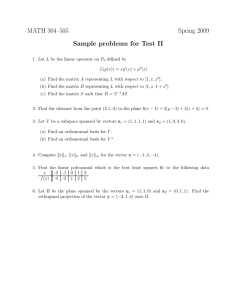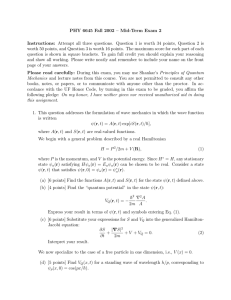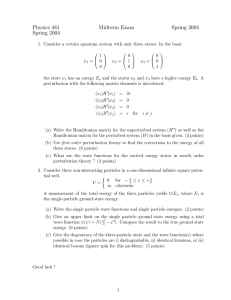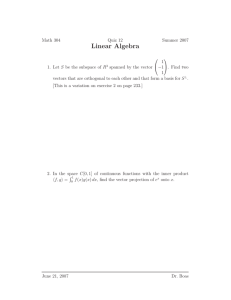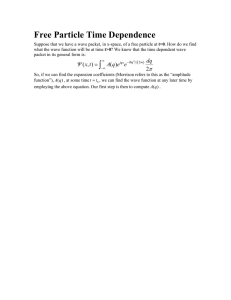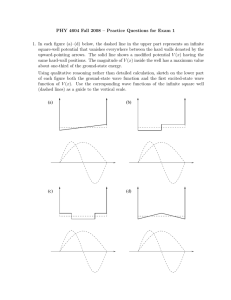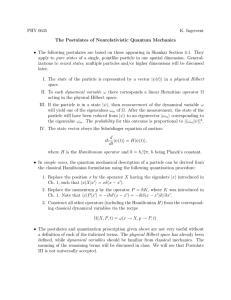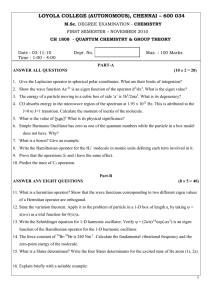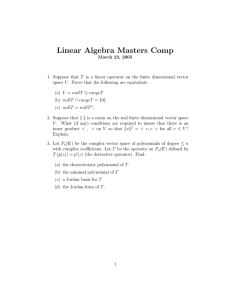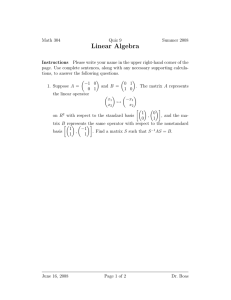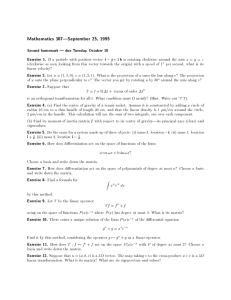PHY 4604 Fall 2008 – Practice Questions for Exam 2 for
advertisement
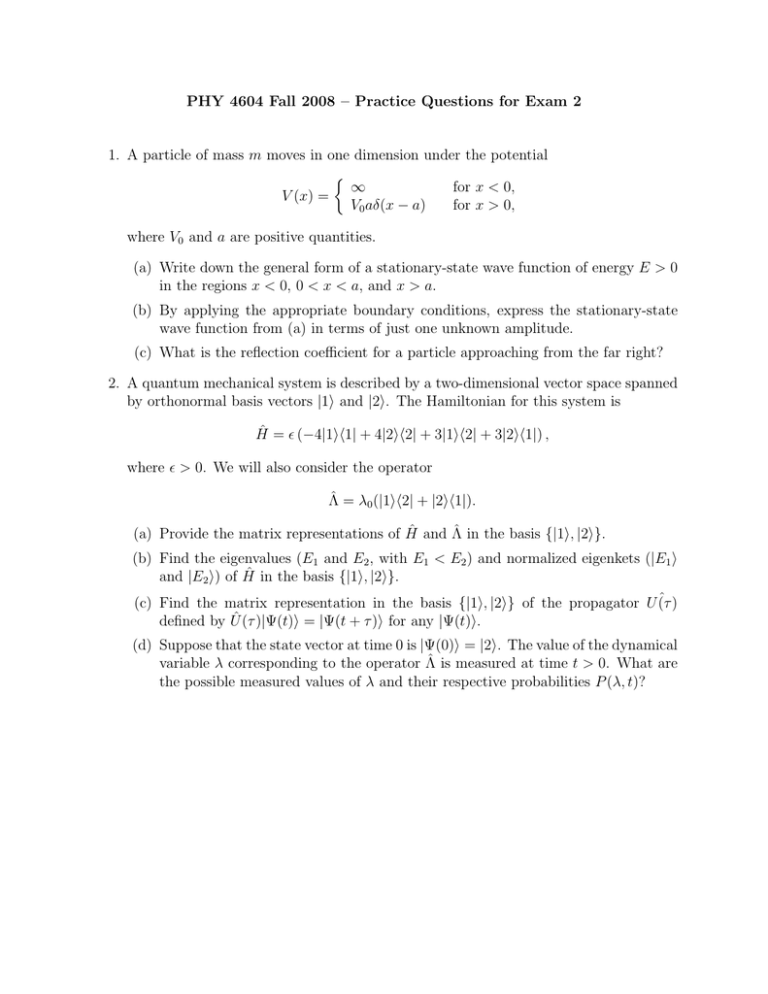
PHY 4604 Fall 2008 – Practice Questions for Exam 2
1. A particle of mass m moves in one dimension under the potential
∞
for x < 0,
V (x) =
V0 aδ(x − a)
for x > 0,
where V0 and a are positive quantities.
(a) Write down the general form of a stationary-state wave function of energy E > 0
in the regions x < 0, 0 < x < a, and x > a.
(b) By applying the appropriate boundary conditions, express the stationary-state
wave function from (a) in terms of just one unknown amplitude.
(c) What is the reflection coefficient for a particle approaching from the far right?
2. A quantum mechanical system is described by a two-dimensional vector space spanned
by orthonormal basis vectors |1i and |2i. The Hamiltonian for this system is
Ĥ = (−4|1ih1| + 4|2ih2| + 3|1ih2| + 3|2ih1|) ,
where > 0. We will also consider the operator
Λ̂ = λ0 (|1ih2| + |2ih1|).
(a) Provide the matrix representations of Ĥ and Λ̂ in the basis {|1i, |2i}.
(b) Find the eigenvalues (E1 and E2 , with E1 < E2 ) and normalized eigenkets (|E1 i
and |E2 i) of Ĥ in the basis {|1i, |2i}.
ˆ )
(c) Find the matrix representation in the basis {|1i, |2i} of the propagator U (τ
defined by Û (τ )|Ψ(t)i = |Ψ(t + τ )i for any |Ψ(t)i.
(d) Suppose that the state vector at time 0 is |Ψ(0)i = |2i. The value of the dynamical
variable λ corresponding to the operator Λ̂ is measured at time t > 0. What are
the possible measured values of λ and their respective probabilities P (λ, t)?
